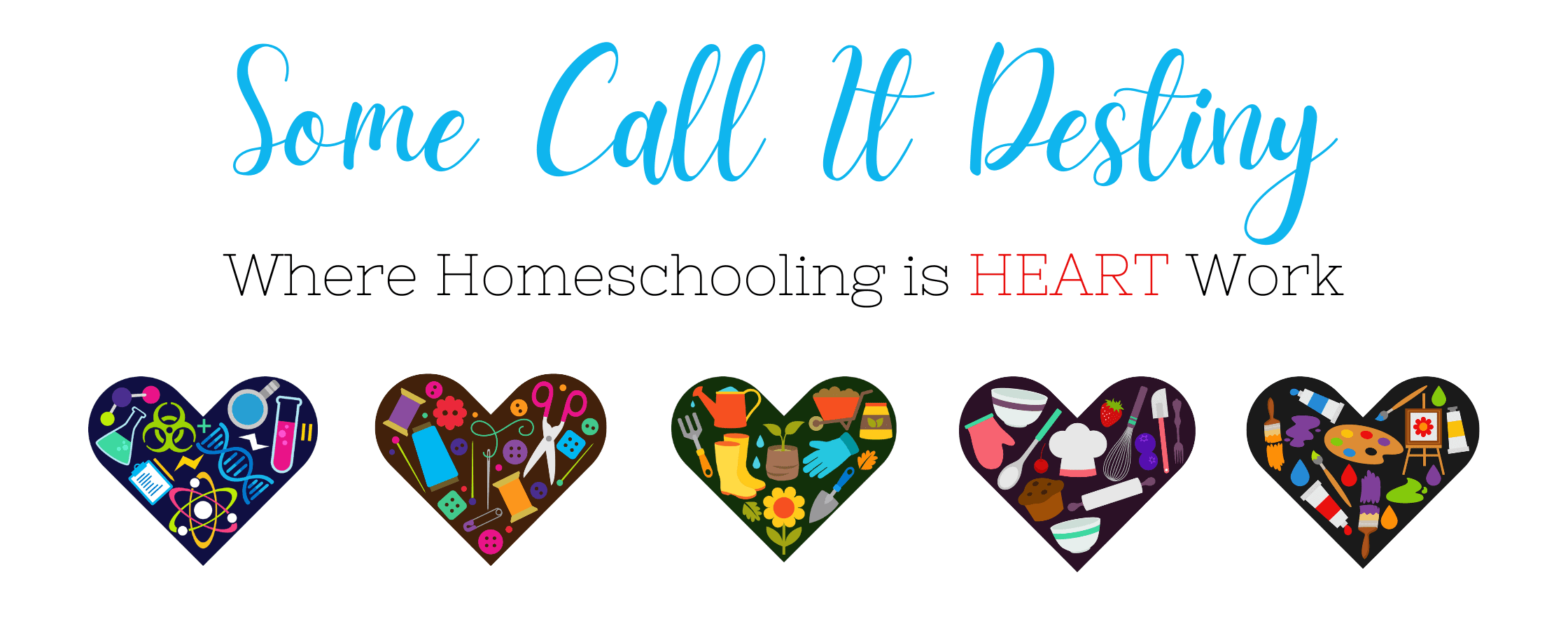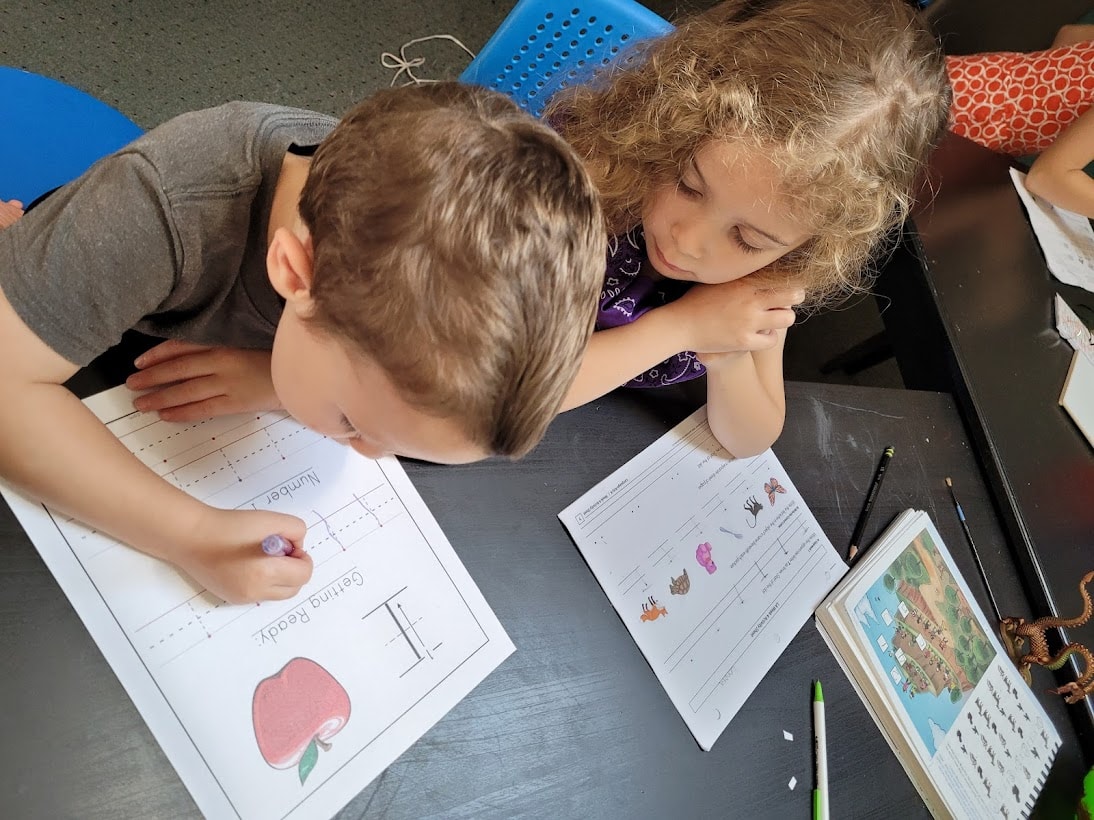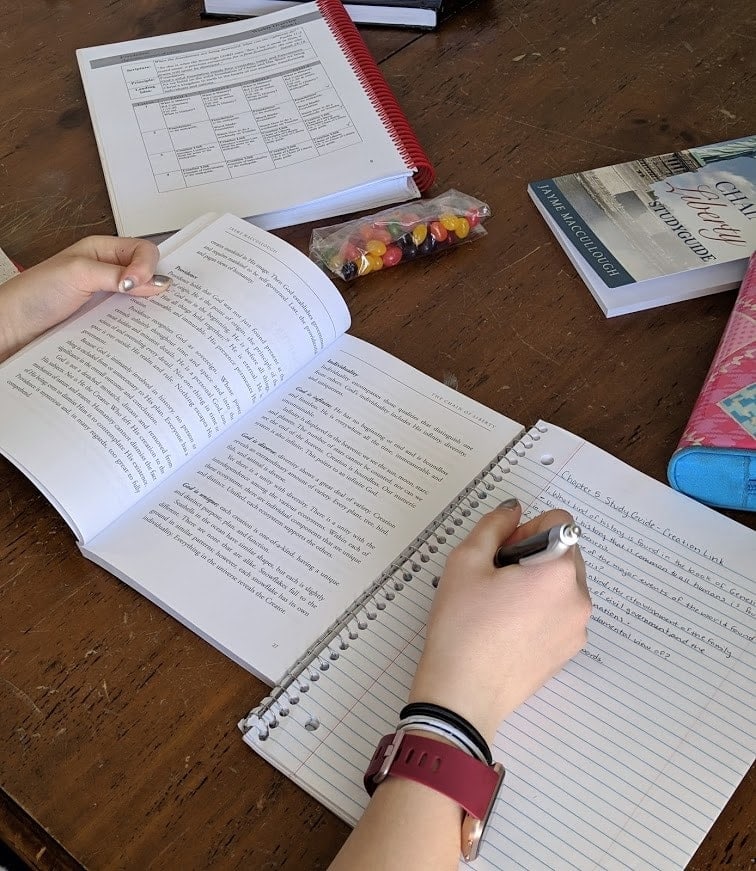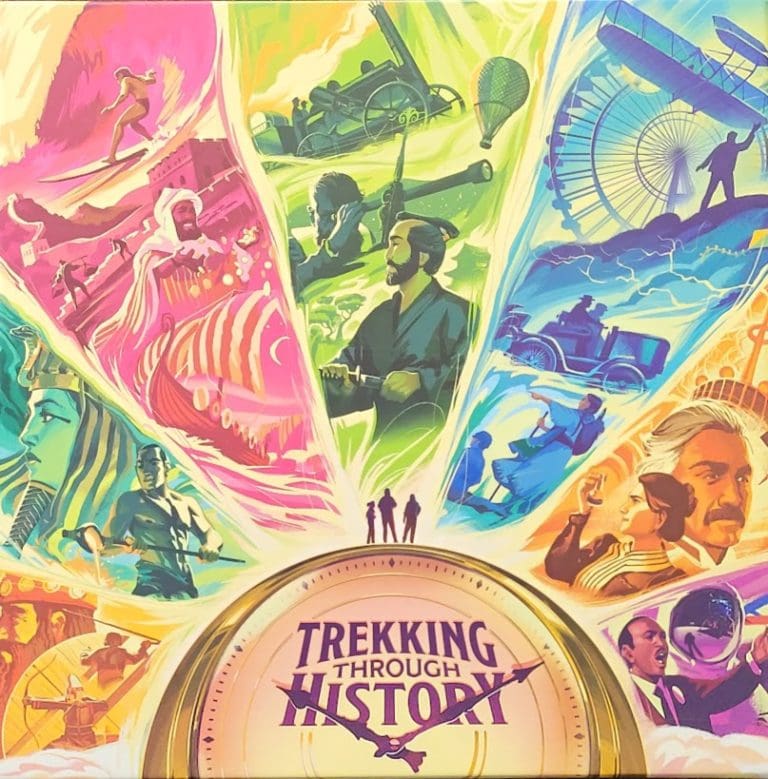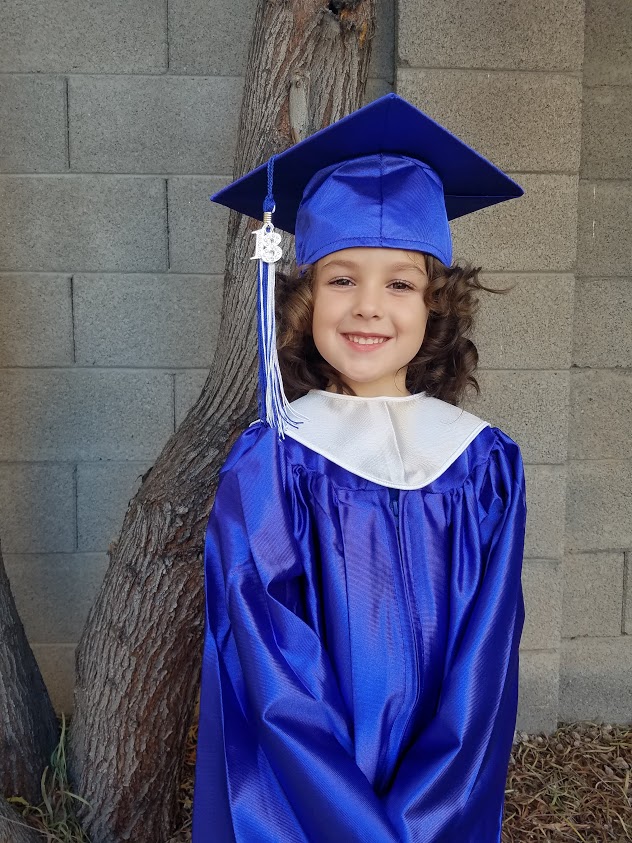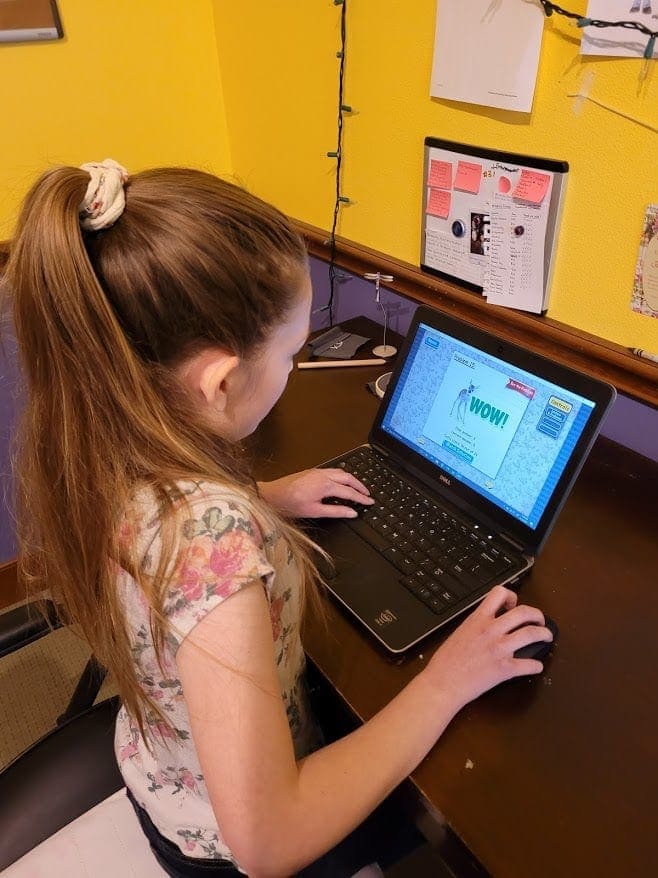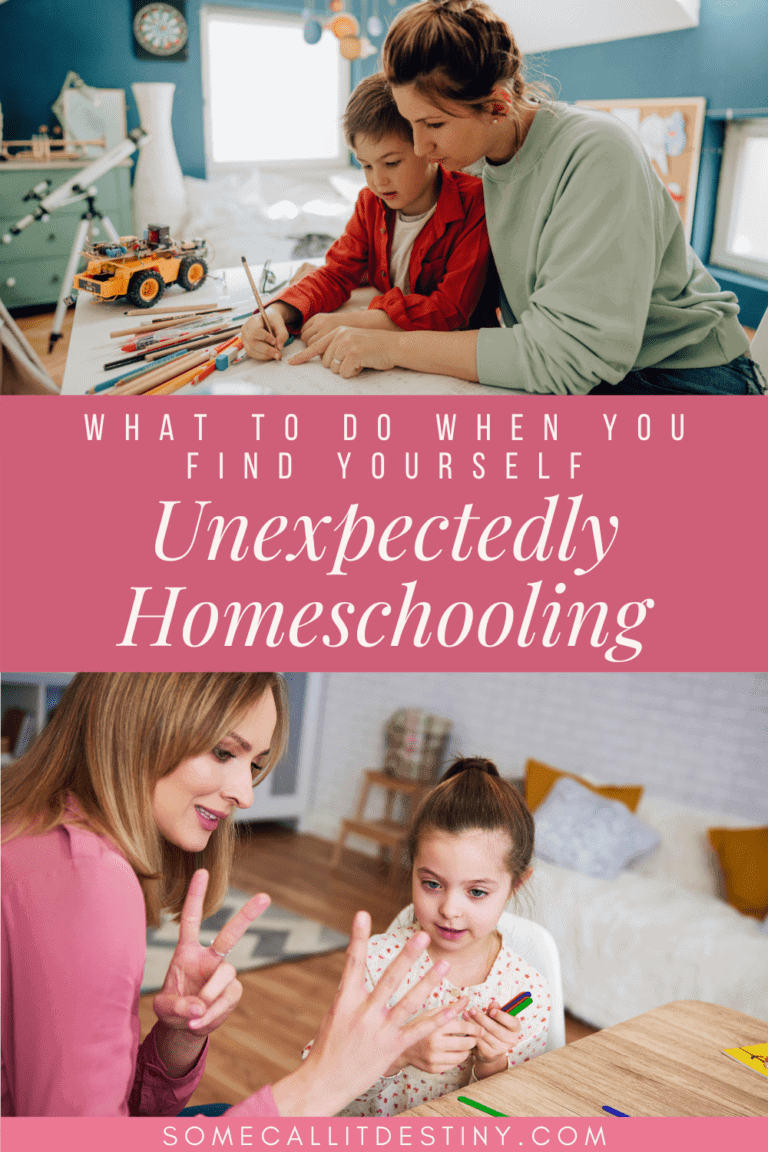Play-Based Learning: The BEST Way to Homeschool Preschool
Do you know one of the most common questions about homeschooling involves moms who want to homeschool preschool?
There is a part of me that thinks, “There’s no such thing as homeschool preschool! That’s just mothering!” But I get it. Society is pushing for our children to begin formal education earlier and earlier. Taking them away from their homes and the influence of their mothers they so desperately need. I completely understand the righteous desire to keep your little ones home a little longer, while also worrying they don’t “fall behind” their peers whose parents are dropping them off at preschool 3 to 5 days a week.
I’m going to let you in on a little secret. Science doesn’t support an academic preschool. What does it support when it comes to preschool-aged children? What is the BEST way to homeschool your preschooler? Because you are absolutely right in wanting to keep them home.
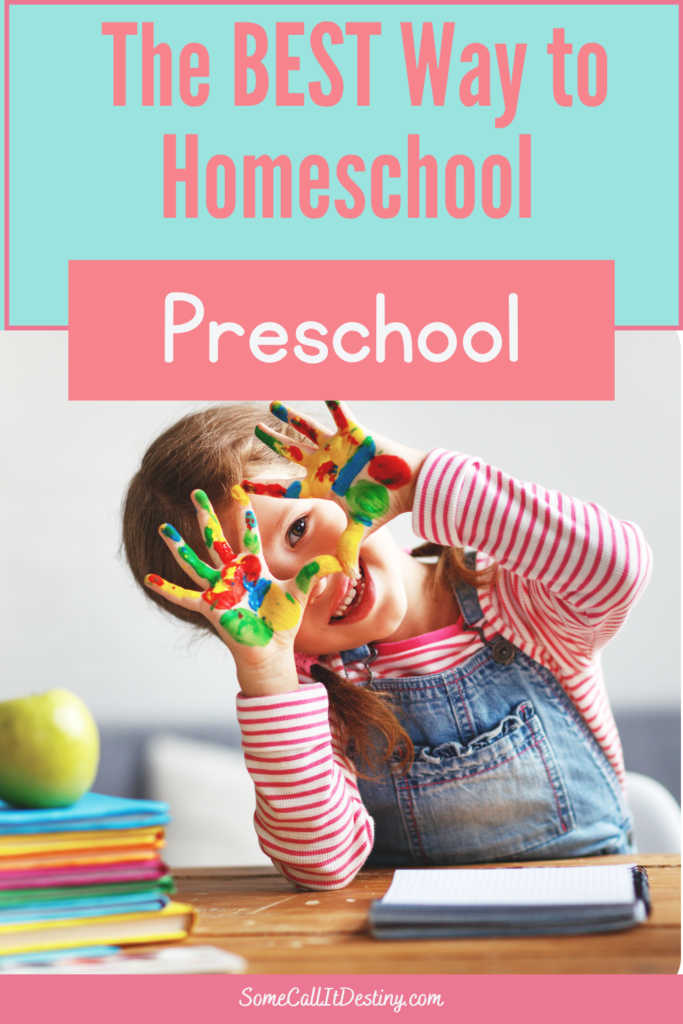
(Keep reading to get to the Giveaway!)
Research Supports Play-Based Learning in Early Education
For a time in the 1970s, most of the play-based kindergartens in Germany were changed into centers for cognitive achievement during an educational reform. However, research comparing 50 play-based classes with 50 early learning centers found that by age ten, those children who had a play-based foundation outperformed their peers in a variety of ways. They were more advanced in reading and math and were better socially and emotionally adjusted as well. In fact, they excelled in creativity, intelligence, oral expression, and “industry.” The study resulted in Germany returning to a play-based educational format.
We often think of Finland when we think of countries that support their children playing in the early years and waiting for kindergarten until closer to seven. But, they are not alone in this. Japan and China, both countries whose children tend to outperform the US in the maths, sciences, and technology take a playful and experimental approach to school before second grade as opposed to didactic. (source)
When it comes to the type of education that is best for preschool, the results are hands-down for play-based learning.
The Best Homeschool Preschool is Centered on Play
The best way to homeschool preschool is to center it on play and experimenting. It is also a time to focus on building habits and developing positive attributes. You don’t need a fancy curriculum (although I do enjoy this preschool curriculum because it combines good books and hands-on play.) What you really need are opportunities to explore learning through play with your child. This can be done in short bursts of time. The rest of the time, encourage your preschooler to explore and play on their own.
Just because preschool is play-based doesn’t mean your child isn’t learning things. It means they are learning them in the best way for them to remember and grow.
What Does a Play-Based Homeschool Preschool Look Like?
Your day can be structured however you like and how it works best with your family situation. I have seven kids, six of whom are still at home, and my preschooler is the youngest. This means I don’t have hours to devote to an organized structured preschool. But it doesn’t mean I don’t do anything.
Here is what our day looks like:
Homeschool Preschool in the Morning
I choose a read-aloud book for my preschooler and kindergartener. If it is a longer book (more words on a page) then they might color or play with playdough while I read. For the most part, they sit with me and are engaged. Sometimes they will ask me to read more books, which I’m usually happy to do. While I read, I’ll ask them questions about what they think might happen (even if we’ve read the book before), or have them point out certain aspects of the picture and we’ll talk about it. I’ll ask them what they would do if they were in the story or how they would change it.
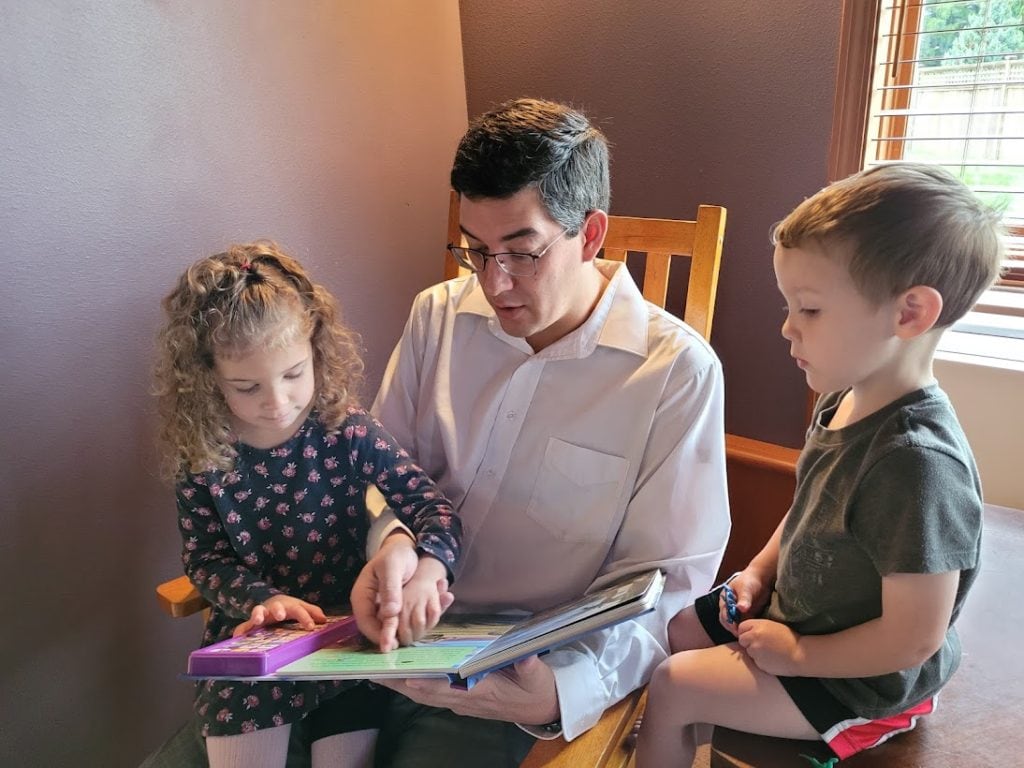
From there, I get out my kindergartener’s schoolwork. My preschooler will sometimes sit with us and learn along. Especially if we are doing science or any hands-on activities. He loves science experiments, playing with math manipulatives, and looking at her phonics flashcards. For my daughter, it is schoolwork, but for my son, it’s playing. I let him experiment on his own.

When it is time for me to work with my older kids, I get out puzzles, magnet tiles, or duplos, for my 3 and 5-year-olds. This strengthens problem-solving skills, spatial awareness, and inspires creativity and imagination. These also have options that center around letters or numbers to gain familiarity if you prefer.
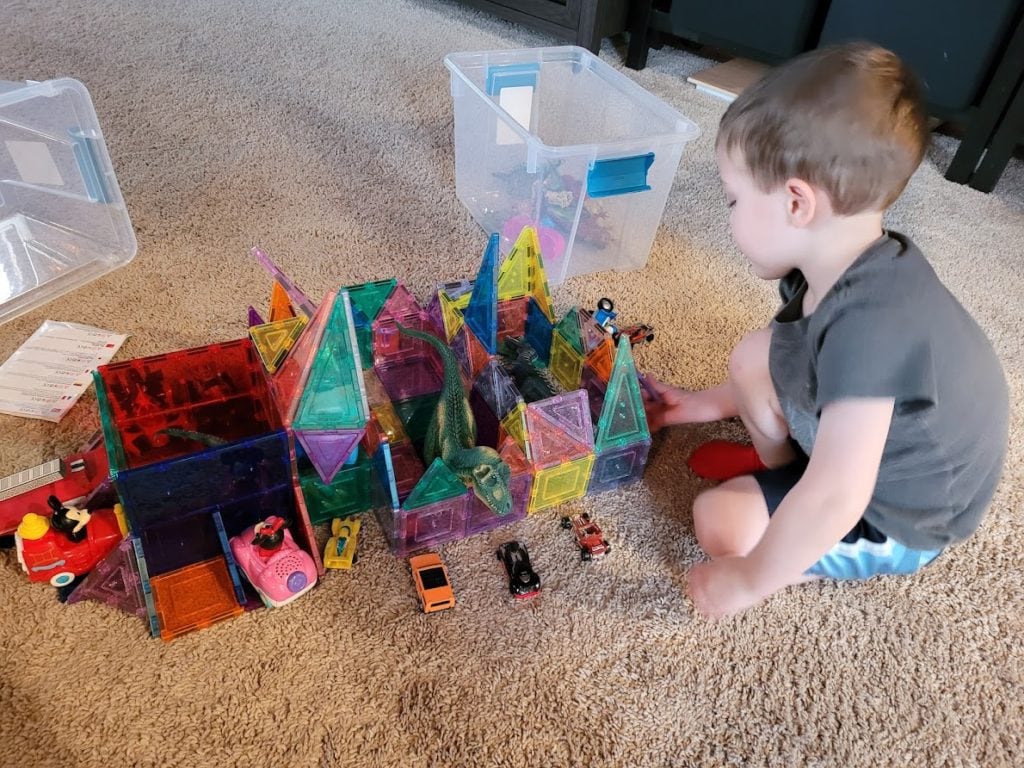
For snack time, we talk about healthy foods and what constitutes a protein, fruit, vegetable, etc. When I can I let my preschooler help with his snack. He loves using our safety knife to cut up his food. We will also count out his goldfish, or I’ll ask him to get a red fruit or white cheese.

Homeschool Preschool in the Afternoon
In the afternoon, we’ll read a scripture story out of a story Bible or watch a short Bible video clip.
The afternoon is mostly for playing. He loves dinosaurs right now, so while he plays I may ask him to sort his dinos into big dinos and little dinos. Or I’ll ask him to count how many he has.
When we play outside, I’ll tell him the names of flowers or trees, or some fun facts about animals we may see.
We also do our chores in the afternoon. He will help me to sort and put away his clothes. I’ll give him a damp rag to clean cabinets in the kitchen while I do dishes. He also helps pick up floors and put things back where they belong. While we pick up floors, I’ll tell him to pick up three things or pick up all the blue things.
Our bedtime routine includes reading more books.
The learning of letters and their sounds, counting, shapes, colors, and so on happen spontaneously throughout our day. I incorporate when I can and know learning is happening regardless of whether or not I’ve sat down to have structured learning time.
What About Preschool Worksheets and Homeschool Preschool Curriculum?
Do you know what every one of my kids has enjoyed playing before they were school-aged?
School!
Every single one.
It makes them feel big. My son has a little Bible that he carries around and he calls it his science book. Or his math book, depending on what subject he is excited about that week.
Sometimes he’ll ask me for a worksheet or he wants to do schoolwork like his older siblings. And you know what, I oblige. If he asks to do a worksheet, we do it.
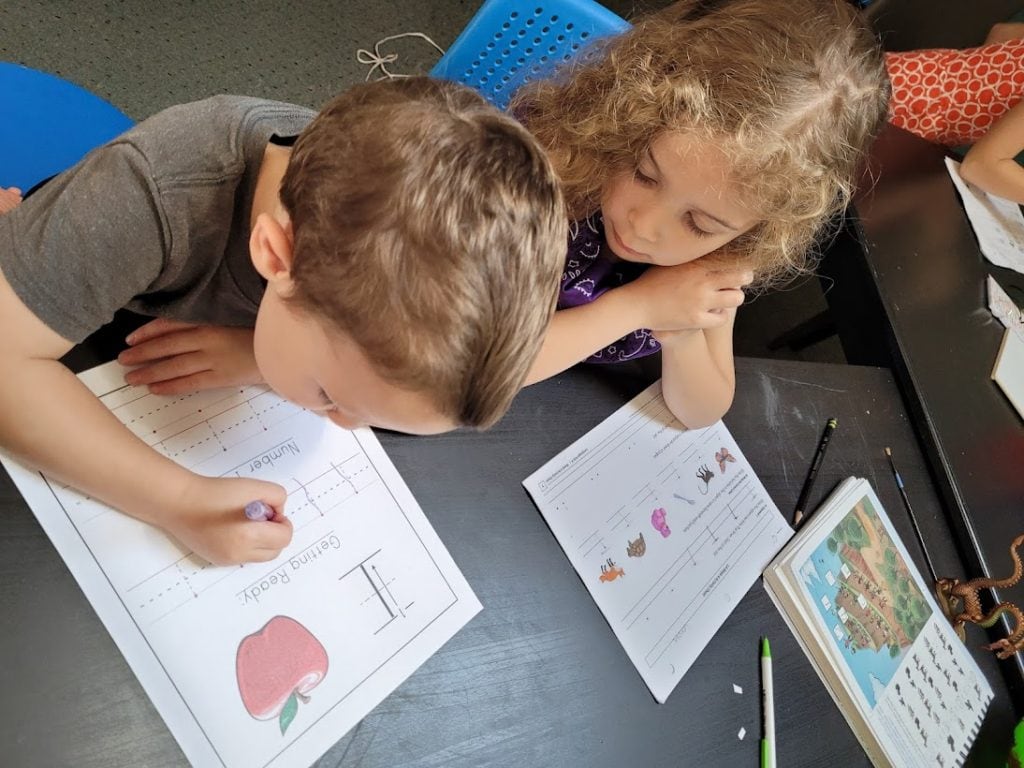
What I don’t do is force it. I don’t make sure he does it “right.” I don’t focus on letter formation or coloring inside the lines. Preschoolers do not have the same skeletal development as kindergarteners. Developmentally, they are not ready to form letters or numbers correctly.
I let him lead in how much and when he wants to do it. I take advantage of when he wants to play school. Because then it is still playing. Sometimes, he’s the teacher. Those times are a lot of fun.
I understand wanting to use a homeschool preschool curriculum. I take advantage of them when necessary. But I make sure any homeschool preschool curriculum I use focuses more on play and love of learning than whether or not my kid has a mastery of letter sounds by the end of it. There will be time for that.
What Not to Do in Homeschool Preschool
When homeschooling preschool, play is best. That doesn’t mean you can’t set aside a specific time each day to work with your child. It means that learning should be centered on play and that you follow your child’s lead.
If they would rather continue playing dolls than sit down for storytime then let them and try again later. (Or read the story to their dolls and see if they join in!) If they don’t want to count to ten for you, then color instead.
Mostly, don’t force it.
Research is showing that early educational milestones are not related to children performing better in later years, and in fact, they may be worse off than peers who delayed formal education until 7 or 8 years of age.
The best predictor of success is one in which children learn to love learning from a young age by being exposed to habits of learning in the home. Being read to, seeing parents reading, having parents spend time with them, and minimal interaction with screen time. It’s the habits of learning and the love of it that produce the best results.
Follow your child’s lead, enjoy them, spend time with them and read, read, read!
